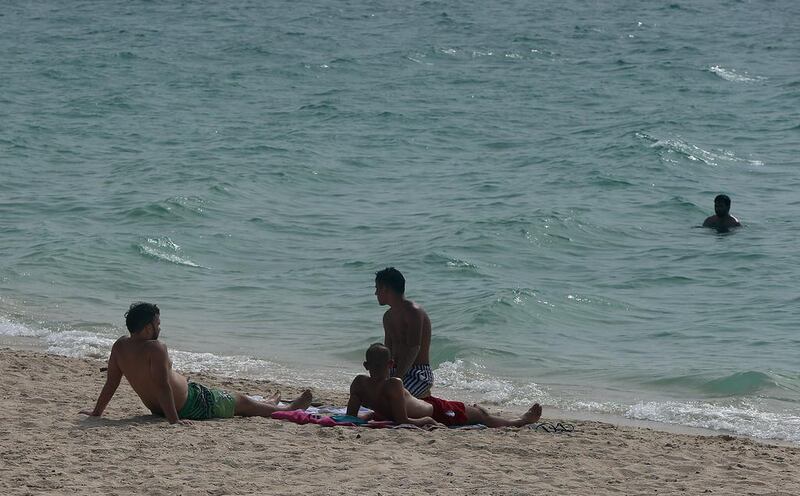ABU DHABI // Several cases of swimmers being stung by jellyfish have prompted a warning from doctors to stay away from the sea.
The warm seas in summer mean that there is an abundance of jelly fish in the Gulf.
“Last year I did see a few cases of jellyfish stings and this year I saw some cases. It’s better not to swim in the sea,” said Dr Lakshmi Chembolli, a specialist dermatologist at Medeor Medical Centre in Al Zeina.
The blue blubber, sea nettle, thimble, upside-down and moon jellyfish are the most common species found in the Gulf.
Dr Chembolli said swimmers were at risk of being stung even after they had returned to shore.
“As soon as you come out of the water, remove the clothes and shower,” she said.
“Jelly fish larvae are microscopic and may be trapped by your clothing. They can release venom-filled barbs.”
Dr Chembolli suggested that swimming costumes should be washed with detergent and left in the dryer, as some barbs might still be on the clothes for a few days.
She said wearing a jellyfish-proof lycra stinger suit was a good idea. “If such a suit is not available, wearing a less finely mashed fabric would help,” she said.
Dr Chembolli said victims of jellyfish sting should pour vinegar on the wound, although “there are reports that say vinegar is not helpful in all cases”.
“The victim can apply heat to inactivate the toxin,” she said.
Dr Chembolli said the popular belief that jellyfish stings could be eased by urinating on the wound was unfounded.
“Some people also use shaving cream on the sting, but there is no evidence that this helps,” she said.
Dr Hiba Ahmad Ghannam, a specialist dermatologist at Al Noor Hospital, had not seen many cases of jellyfish stings this year, but said people should avoid the sea.
In the event of a jellyfish sting, “wash the affected area with hot water or vinegar water or diluted baking soda for thirty seconds to a minute”, said Dr Ghannam.
“You can then wash it with cold water.”
That removes jellyfish spikes.
Take some non-sedative antihistamines (anti-allergics), and do not urinate on the afected area because that is unhygienic and would not help.
If some jellyfish spikes are left in the skin, they can cause an allergic reaction. The use of vinegar or baking soda will prevent this.
The severity of a person’s reaction to a jellyfish sting depends on whether they are allergic to it.
Dr Ghannam said victims of jellyfish stings could go into shock, adding that she had to administer oral steroids in one such case.
arizvi2@thenational.ae






